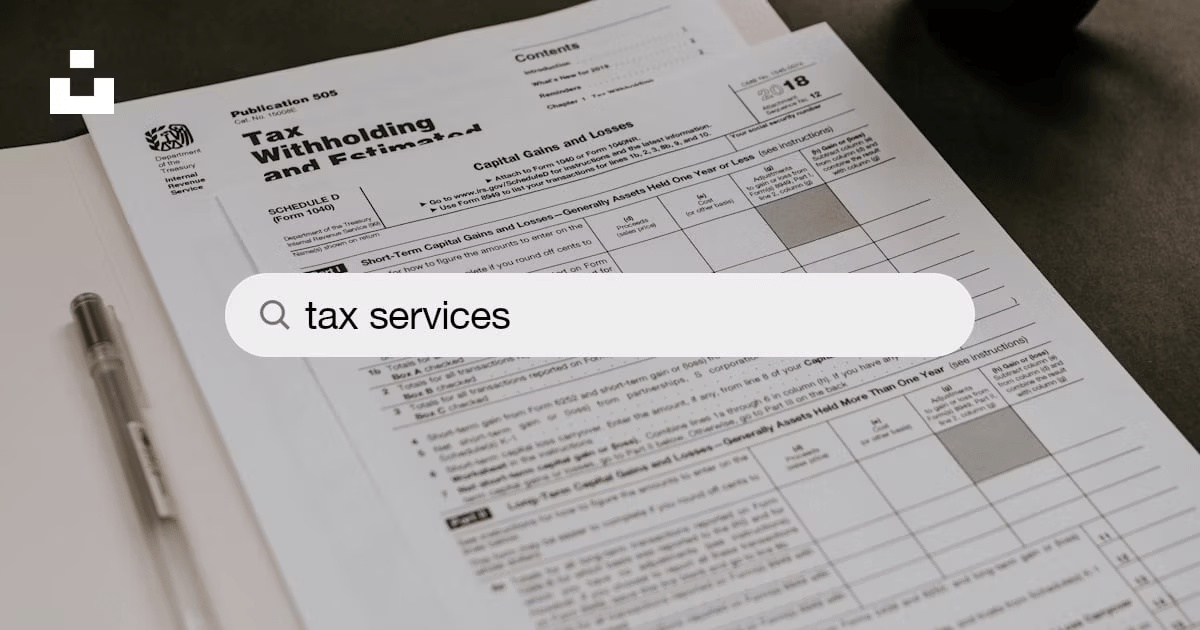Are you a small business owner in Utah struggling to navigate the complex world of payroll taxes? Look no further – this simplified guide has got you covered. Understanding payroll taxes is crucial for any business, but it can be especially challenging for small businesses with limited resources. In this article, we will break down the key concepts of Utah payroll taxes and provide you with all the information you need to stay compliant and avoid costly penalties. From understanding the different types of taxes to calculating deductions and filing deadlines, we will guide you through every step of the process. Our goal is to make payroll taxes less intimidating and empower you with the knowledge to manage them effectively. So, grab a cup of coffee, sit back, and let's simplify payroll taxes for your Utah small business.
Understanding Utah State Income Tax Withholding
When it comes to payroll taxes, one of the key obligations for employers in Utah is withholding state income tax from employees' wages. Utah follows a progressive income tax system, meaning that the tax rates increase as the income levels rise. As an employer, you are responsible for calculating and withholding the correct amount of state income tax from your employees' paychecks.
To determine the amount of state income tax to withhold, you need to consider various factors such as the employee's filing status, number of allowances claimed, and any additional withholding amounts requested by the employee. Utah provides an Employer's Withholding Tax Guide, which outlines the steps to calculate the withholding amount accurately. It's essential to stay updated with any changes to the tax rates or withholding tables to ensure compliance.
Utah state income tax withholding is typically done on a semiweekly, monthly, or quarterly basis, depending on the size of your payroll. The Utah State Tax Commission requires employers to remit the withheld taxes to the state on a regular schedule. Failure to comply with the withholding and remittance requirements can result in penalties and interest charges. Therefore, it's crucial to maintain accurate records and meet the filing deadlines to avoid any issues.
Utah State Unemployment Tax for Small Businesses
In addition to state income tax withholding, small businesses in Utah are also subject to state unemployment tax. The Utah Department of Workforce Services administers the state unemployment insurance program, which provides temporary financial assistance to eligible workers who become unemployed through no fault of their own.
As an employer, you are responsible for paying unemployment taxes based on the wages you pay to your employees. The tax rates vary depending on factors such as your industry, experience rating, and the overall financial condition of the unemployment insurance fund. The Utah State Tax Commission determines the tax rates for each employer on an annual basis.
To calculate your unemployment tax liability, you need to report your quarterly wages and pay the corresponding taxes to the Utah Department of Workforce Services. It's important to accurately classify your workers as employees or independent contractors to ensure proper tax treatment. Misclassification can lead to penalties and other legal consequences.
Utah State Disability Insurance Tax
Utah is one of the few states that require employers to provide disability insurance coverage for their employees. The Utah State Disability Insurance (SDI) program is designed to offer temporary wage replacement benefits to employees who are unable to work due to non-work-related illnesses, injuries, or disabilities.
As an employer, you are required to withhold a small percentage of your employees' wages to fund the state disability insurance program. The current SDI tax rate is 1.0% of the first $35,300 of each employee's annual wages. The maximum tax per employee is $353 per year.
Utah employers are responsible for remitting the SDI taxes to the Utah State Tax Commission on a quarterly basis. Failure to comply with the SDI requirements can result in penalties and interest charges. It's important to maintain accurate records and meet the filing deadlines to avoid any issues.
Workers' Compensation Insurance in Utah
Workers' compensation insurance provides medical and wage benefits to employees who suffer work-related injuries or illnesses. In Utah, most employers are required to carry workers' compensation insurance coverage, regardless of the number of employees or their industry.
Workers' compensation insurance premiums are based on various factors, including the nature of your business, the number of employees, and your claims history. Utah has a competitive market for workers' compensation insurance, and you can choose from multiple insurance carriers to find the best coverage and rates for your business.
It's essential to understand your obligations as an employer regarding workers' compensation insurance. Failure to provide adequate coverage can result in significant penalties and legal consequences. Additionally, implementing proper safety measures and promoting a culture of workplace safety can help prevent accidents and reduce insurance costs.
Utah State Payroll Tax Reporting and Filing Requirements
To ensure compliance with Utah payroll tax laws, small businesses must meet various reporting and filing requirements. Here are some key obligations to keep in mind:
- Register as an employer: Before hiring employees, you need to register with the Utah State Tax Commission as an employer. This registration process enables you to obtain a state employer identification number (EIN) and ensures that you are properly identified for tax purposes.
- Report new hires: Utah law requires employers to report new hires to the Utah Department of Workforce Services within 20 days of their hire date. This reporting helps the state track child support obligations and prevent fraudulent activities.
- File quarterly wage reports: Employers in Utah are required to file quarterly wage reports with the Utah State Tax Commission. These reports provide information on wages paid to employees, withholdings, and other payroll-related details. Failure to file timely and accurate wage reports can result in penalties and interest charges.
- File annual reconciliation: At the end of each calendar year, employers in Utah must file an annual reconciliation with the Utah State Tax Commission. This reconciliation confirms the accuracy of the quarterly wage reports and ensures that all taxes have been properly withheld and remitted.
It's important to familiarize yourself with the specific reporting and filing requirements applicable to your business. The Utah State Tax Commission provides detailed guidance and resources to help you navigate these obligations effectively.
Calculating and Remitting Utah Payroll Taxes
Accurate calculation and timely remittance of payroll taxes are crucial for small businesses in Utah. Here's a step-by-step guide:
- Determine the types of taxes to withhold: Based on the employee's filing status, allowances claimed, and any additional withholding amounts, calculate the appropriate amounts for state income tax withholding, state disability insurance tax, and any other applicable taxes.
- Calculate deductions: Consider any pre-tax deductions such as health insurance premiums, retirement contributions, and other qualified benefits. Subtract these deductions from the employee's gross wages to arrive at the taxable wages.
- Calculate employer contributions: Some payroll taxes, such as state unemployment tax and workers' compensation insurance premiums, require employer contributions. Calculate the amounts based on the applicable rates and the wages paid to your employees.
- Remit the taxes: Depending on your payroll size, you may need to remit payroll taxes on a semiweekly, monthly, or quarterly basis. Use the appropriate forms provided by the Utah State Tax Commission to report and remit the taxes accurately and on time.
- Keep accurate records: Maintain detailed records of all payroll-related transactions, including wages, withholdings, deductions, and tax payments. These records will be essential for audit purposes and can help resolve any discrepancies or issues that may arise.
Penalties for Non-compliance with Utah Payroll Tax Laws
Non-compliance with Utah payroll tax laws can result in significant penalties and financial consequences for small businesses. The Utah State Tax Commission has the authority to impose penalties for various violations, including:
- Late filing or failure to file required reports: Failure to file quarterly wage reports, annual reconciliations, or other required reports can result in penalties and interest charges. The penalties increase with the number of employees and the duration of non-compliance.
- Late payment or non-payment of taxes: Failure to remit payroll taxes on time or non-payment of taxes can lead to penalties and interest charges. The penalties are based on the amount of taxes due and the duration of non-compliance.
- Misclassification of workers: Misclassifying workers as independent contractors instead of employees can result in penalties and legal consequences. It's essential to properly classify your workers based on the guidelines provided by the Utah State Tax Commission and other relevant agencies.
To avoid penalties, it's crucial to stay updated with the latest tax laws, maintain accurate records, and meet all reporting and filing requirements. If you have any doubts or questions, it's advisable to consult with a qualified tax professional or seek guidance from the Utah State Tax Commission.
Resources for Small Businesses to Navigate Utah Payroll Taxes
Navigating Utah payroll taxes can be complex, but fortunately, there are resources available to help small businesses. The Utah State Tax Commission provides a comprehensive website with guides, forms, and other resources to assist employers in understanding and meeting their payroll tax obligations.
Additionally, there are professional organizations, industry associations, and accounting firms that specialize in payroll tax services. Engaging the services of a qualified professional can help ensure compliance, save time, and minimize the risk of errors or penalties.
It's also beneficial to stay informed about any changes to Utah payroll tax laws and regulations. The Utah State Tax Commission regularly updates its website with the latest information and announcements. Subscribing to their email newsletters or following their social media accounts can help you stay in the loop.
Remember, proper payroll tax management is essential for the financial health and compliance of your small business. By staying informed, seeking professional guidance when needed, and maintaining accurate records, you can effectively navigate Utah payroll taxes and focus on growing your business.
Conclusion: Importance of Proper Payroll Tax Management for Small Businesses in Utah
In conclusion, understanding and managing payroll taxes is a critical responsibility for small businesses in Utah. Compliance with Utah payroll tax laws ensures that you meet your obligations as an employer, avoid penalties, and contribute to the state's tax system.
By understanding the different types of payroll taxes, such as state income tax withholding, state unemployment tax, and state disability insurance tax, you can accurately calculate and withhold the appropriate amounts from your employees' wages.
Additionally, staying updated with the reporting and filing requirements, remitting taxes on time, and keeping accurate records are essential to maintain compliance and avoid any legal consequences.
Remember, you don't have to navigate Utah payroll taxes alone. Take advantage of the resources provided by the Utah State Tax Commission, seek professional guidance when needed, and stay informed about the latest tax laws and regulations. Whether you're a small business owner or individual taxpayer, consulting with a tax attorney in Salt Lake City can provide valuable insights and assistance in managing your payroll tax obligations effectively. From payroll tax calculations to compliance issues, a knowledgeable tax attorney can offer personalized guidance tailored to your specific situation. Don't hesitate to reach out for help and ensure that your payroll tax process is smooth, accurate, and compliant with state regulations. With the right support, you can streamline your payroll operations and focus on growing your business without worrying about tax-related challenges.
Proper payroll tax management is not only a legal requirement but also contributes to the financial stability and success of your small business. By simplifying payroll taxes and empowering yourself with knowledge, you can focus on what you do best – running and growing your business in Utah.
So, grab that cup of coffee, implement effective payroll tax strategies, and take control of your Utah small business's payroll taxes today!


No comments yet